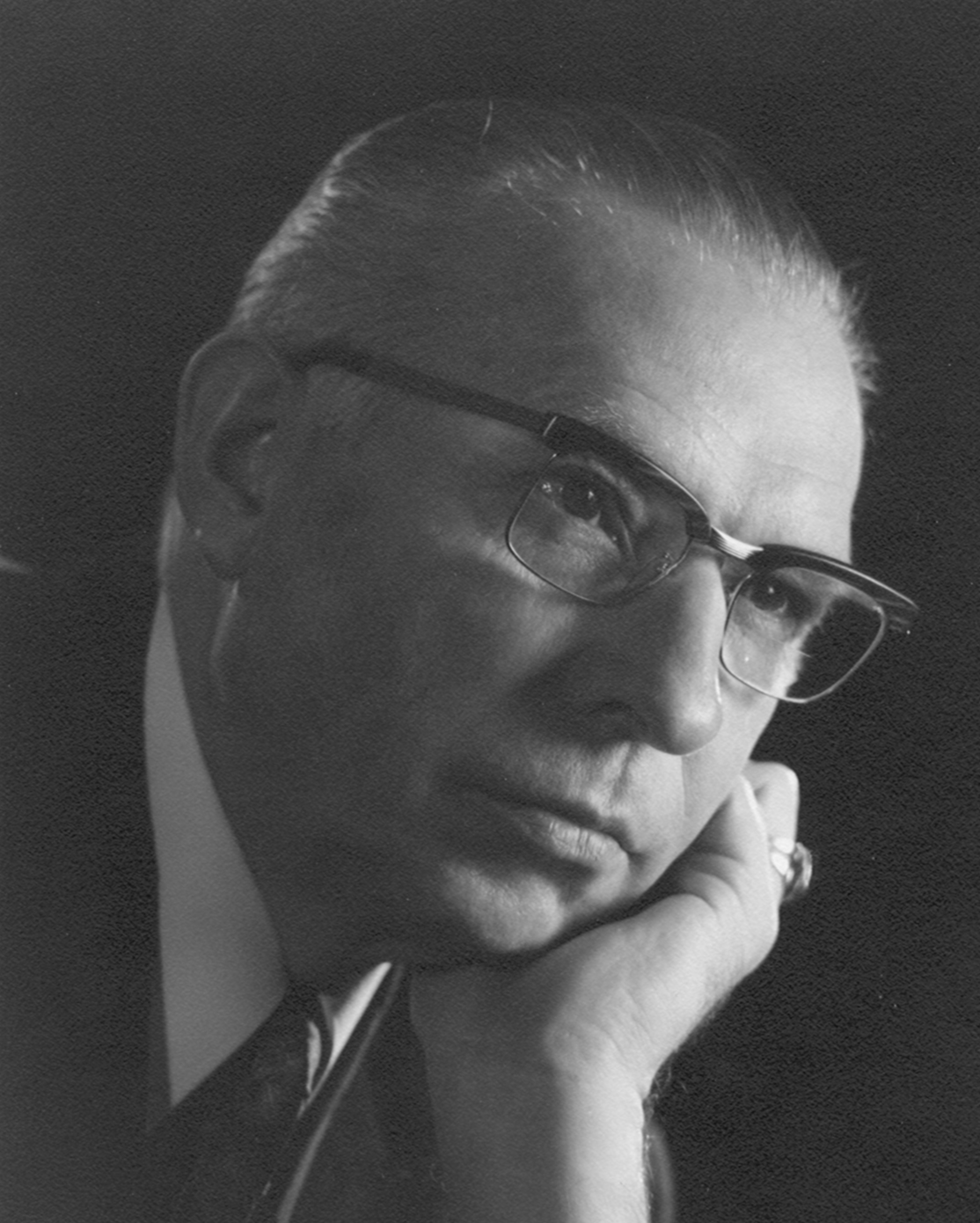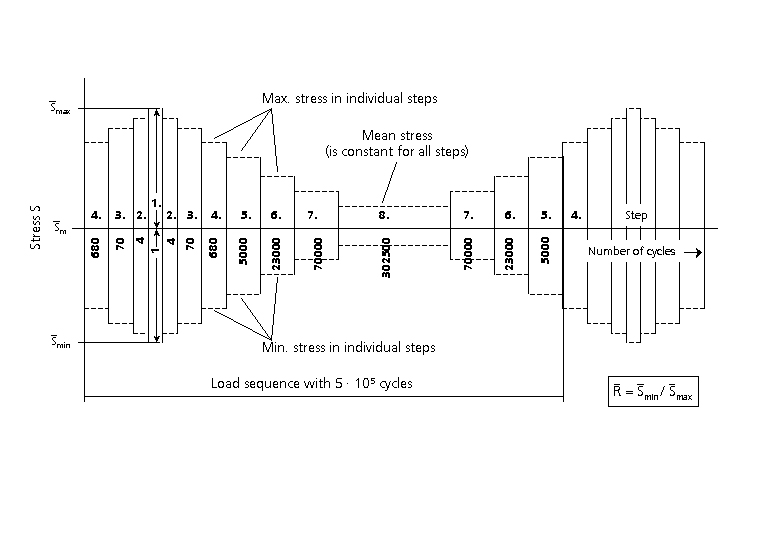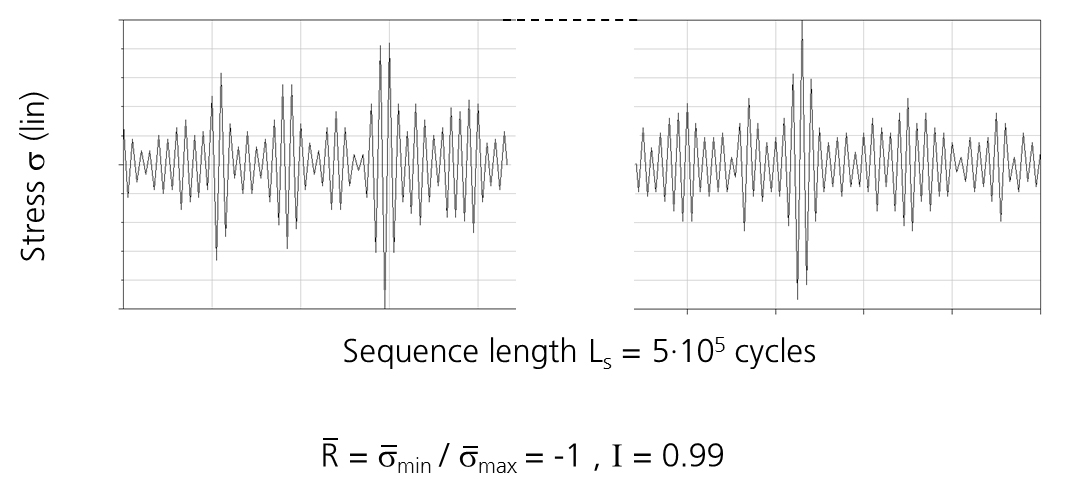Ernst-Gassner-Award
8-Step-Blocked-Program-Test developed by Ernst Gassner
Ernst Gassner recognized the significance of service loads with variable amplitudes for lightweight design and fatigue life of components. In 1939 he first formulated a procedure for the experimental simulation of such varying loads: the historical 8 step blocked program test with a Gauss-like distribution of amplitudes. The block program was replaced in the sixties by random loading, due to the development of servo-hydraulic testing facilities. Since then the state of the art in testing with spectra is the application of random loading.
Structural durability
Structural durability is understood as the ability of a structure or a component to withstand cyclic, quasistatic, impact and environmental loads that occur during service. Part of the spectrum can exceed the high-cycle constant amplitude fatigue strength in order to enable lightweight design; the required service duration can still be fulfilled also under consideration of special events. For establishing a structurally durable construction, the design engineer has to adjust the strength properties in the critical, i.e. highly loaded, regions to the occurring local service stresses/strains in the most effective manner possible for determining the component dimensions. This can be accomplished through suitable design and manufacturing as well as adequate material
 Fraunhofer Institute for Structural Durability and System Reliability LBF
Fraunhofer Institute for Structural Durability and System Reliability LBF

